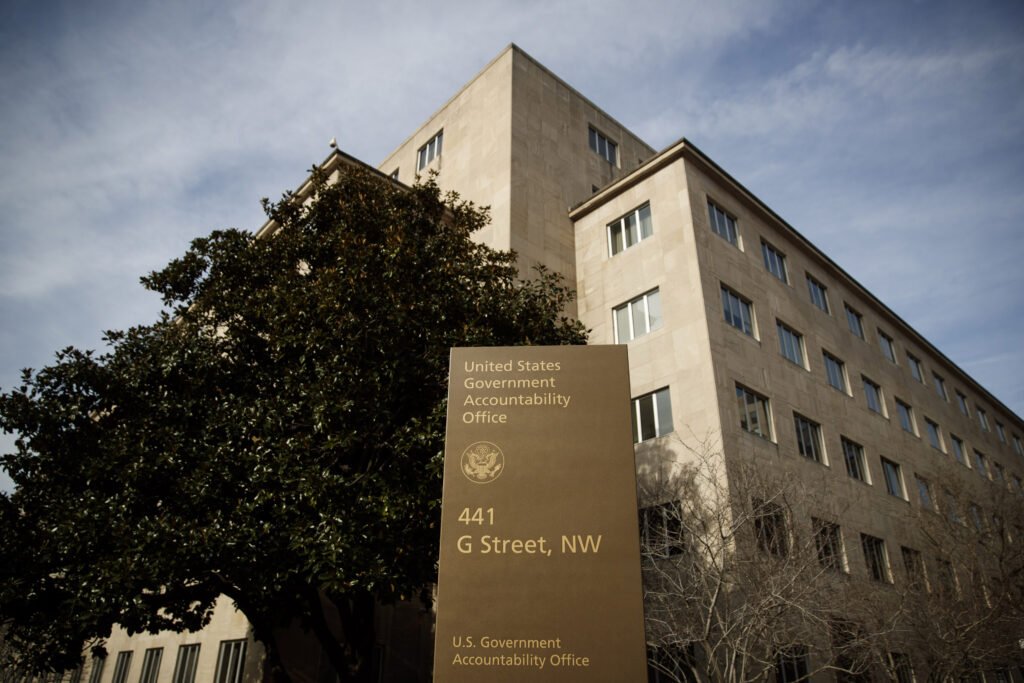The primary non-partisan government watchdog agency in the country has confirmed that they are examining the costs of operating the only active Medicaid program with a work requirement, as state and federal Republican lawmakers consider similar requirements.
The US Government Accountability Office (GAO) informed KFF Health News that their analysis of the Georgia Pathways to Coverage program could be published this fall.
In the first 100 days, the Trump administration has claimed that eliminating waste in federal programs was a priority, giving billionaire Elon Musk and the newly created Department of Government Efficiency (DOGE) broad leeway to radically modify federal agency operations.
The idea of a national mandate requiring Medicaid beneficiaries to work, study, or engage in other qualifying activities to maintain coverage is gaining traction as Congressional Republicans consider proposals to cut $880 billion from the federal deficit over 10 years.
These savings are intended to offset the costs of President Donald Trump’s priorities, including border security and tax cuts that would greatly benefit the wealthy.
A majority of the public, regardless of political orientation, opposes cuts to Medicaid funding, according to a survey published on May 1 by KFF, the nonprofit organization dedicated to health information that includes KFF Health News.
The GAO’s research comes at a critical time, said Leo Cuello, a research professor at the Center for Children and Families at Georgetown University.
“The Congress seems to be implementing Medicaid cuts in a frantic and hasty manner,” he said. The GAO report could explain to Congress the magnitude of the problems with work requirements “before they rush and do it without thinking.”
The experiences of Georgia and Arkansas, the only two states that have implemented similar programs, show that work requirements reduce Medicaid enrollment and add costly layers of bureaucracy.
Now, more states are seeking approval from the Trump administration to implement work requirements for Medicaid, the state-federal program that provides medical coverage to millions of Americans with low incomes and disabilities.
The Centers for Medicare and Medicaid Services (CMS), which approve Medicaid pilot programs like work requirements, did not respond to a request for comments.
In 2019, the GAO found that managing work requirement programs can be costly for states (hundreds of millions of dollars, in some cases) and that federal officials did not consider those costs when approving them, which could increase Medicaid spending.
Still, the Trump administration has supported work requirements. These programs require state workers to manually verify if beneficiaries meet eligibility requirements and monitor their ongoing compliance.
In 2023, over 90% of eligible American adults for Medicaid expansion were already working or could be exempt from requirements, according to KFF.
During his confirmation hearing to lead the CMS, Mehmet Oz said he supported work requirements but did not believe they should be used as “an obstacle, a deceptive attempt to prevent people from accessing Medicaid.”
The first Trump administration approved work requirements in 13 states. Almost all programs were blocked by the Biden administration or federal courts.
Georgia is one of the 10 states that has not fully expanded Medicaid to nearly all low-income adults.
The state launched Pathways to Coverage on July 1, 2023. It has been a political priority for Republican Governor Brian Kemp, whose office was embroiled in a lengthy legal battle with the Biden administration when they tried to block the program.
The program cost over $57 million in state and federal funds by the end of 2024, much of which was allocated to administration. As of April 25, 7,410 people were enrolled, a small percentage of those who would be covered by full Medicaid expansion. Pathways has also slowed processing times for other benefit programs in the state.
When asked about the costs and benefits of Pathways, Garrison Douglas, a spokesperson for Kemp, pointed to the recent state Obamacare marketplace in Georgia. This recorded record enrollment due in part to improved subsidies approved by the Biden administration.
“We are covering more Georgians than traditional Medicaid expansion would have covered, and for less money,” said Douglas, referring to state, not federal, spending.
The enhanced subsidies that drove enrollment are set to expire this year. The Congressional Budget Office estimates that extending them would cost the federal government around $335 billion over 10 years.
In March, Arkansas requested the Trump administration to relaunch their Medicaid work requirement program. The federal public comment period on the program ends on May 10. An earlier version was suspended by a court order in 2019, but not before over 18,000 people lost their coverage in less than a year.
Georgia plans to request the White House to renew their program with modest changes, including reducing how often enrollees must prove to the state that they are working or engaging in other qualifying activities.
The GAO’s investigation into Georgia’s work requirement program comes after three US Democratic senators—Jon Ossoff and Raphael Warnock from Georgia, and Ron Wyden from Oregon—requested the GAO in December to investigate the program’s costs. Their request cited a report from KFF Health News.
“I pushed for this GAO report because I trust that their findings will further support what we already know: Pathways to Coverage costs taxpayers more money and covers fewer people than if the state simply joined the other 40 states to close the healthcare coverage gap,” said Warnock in a statement.
The GAO stated that their goal is to determine how much Georgia has spent on managing the program, how much of that money was federal, and how that spending is being monitored.
Authors:
Sam Whitehead: swhitehead@kff.org
Renuka Rayasam: rrayasam@kff.org, @renurayasam
Related Topics:
Contact Us
Submit a Story Tip


